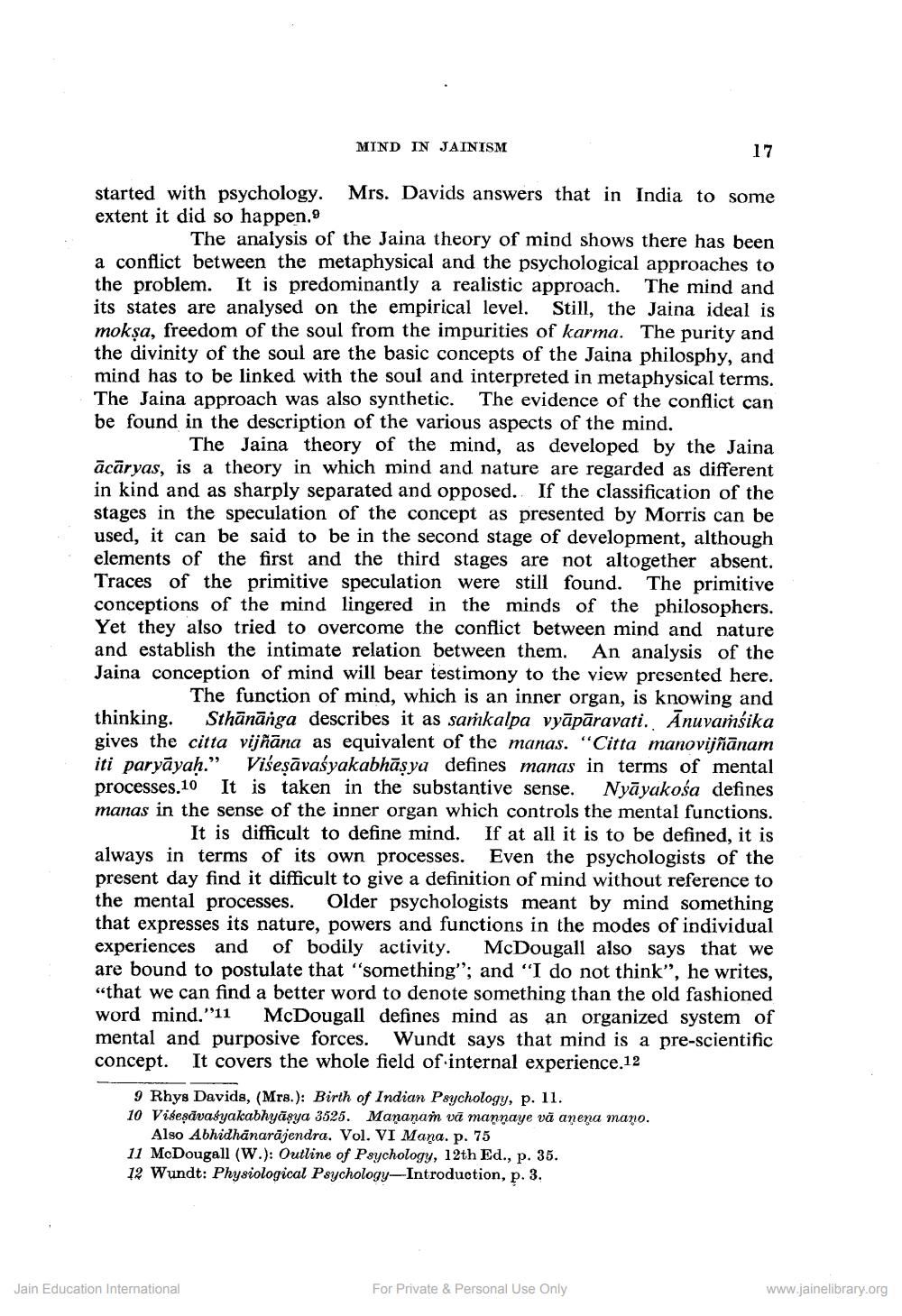________________
MIND IN JAINISM
17
started with psychology. Mrs. Davids answers that in India to some extent it did so happen.
The analysis of the Jaina theory of mind shows there has been a conflict between the metaphysical and the psychological approaches to the problem. It is predominantly a realistic approach. The mind and its states are analysed on the empirical level. Still, the Jaina ideal is moksa, freedom of the soul from the impurities of karma. The purity and the divinity of the soul are the basic concepts of the Jaina philosphy, and mind has to be linked with the soul and interpreted in metaphysical terms. The Jaina approach was also synthetic. The evidence of the conflict can be found in the description of the various aspects of the mind.
The Jaina theory of the mind, as developed by the Jaina ācāryas, is a theory in which mind and nature are regarded as different in kind and as sharply separated and opposed. If the classification of the stages in the speculation of the concept as presented by Morris can be used, it can be said to be in the second stage of development, although elements of the first and the third stages are not altogether absent. Traces of the primitive speculation were still found. The primitive conceptions of the mind lingered in the minds of the philosophers. Yet they also tried to overcome the conflict between mind and nature and establish the intimate relation between them. An analysis of the Jaina conception of mind will bear testimony to the view presented here.
The function of mind, which is an inner organ, is knowing and thinking. Sthānānga describes it as samkalpa vyāpāravati. Anuvaṁsika gives the citta vijñāna as equivalent of the manas. "Citta manovijñānam iti paryāyah.” Visesavaśyakabhāsya defines manas in terms of mental processes.10 It is taken in the substantive sense. Nyāyakośa defines manas in the sense of the inner organ which controls the mental functions.
It is difficult to define mind. If at all it is to be defined, it is always in terms of its own processes. Even the psychologists of the present day find it difficult to give a definition of mind without reference to the mental processes. Older psychologists meant by mind something that expresses its nature, powers and functions in the modes of individual experiences and of bodily activity. McDougall also says that we are bound to postulate that "something"; and "I do not think", he writes, “that we can find a better word to denote something than the old fashioned word mind."11 McDougall defines mind as an organized system of mental and purposive forces. Wundt says that mind is a pre-scientific concept. It covers the whole field of internal experience.12
9 Rhys Davids, (Mrs.): Birth of Indian Psychology, p. 11. 10 Viseşāvasyakabhyāşya 3525. Manana in vā mannaye vă anena mano.
Also Abhidhanarajendra, Vol. VI Mana. p. 75 11 McDougall (W.): Outline of Psychology, 12th Ed., p. 35. 12 Wundt: Physiological Psychology-Introduction, p. 3.
Jain Education International
For Private & Personal Use Only
www.jainelibrary.org




